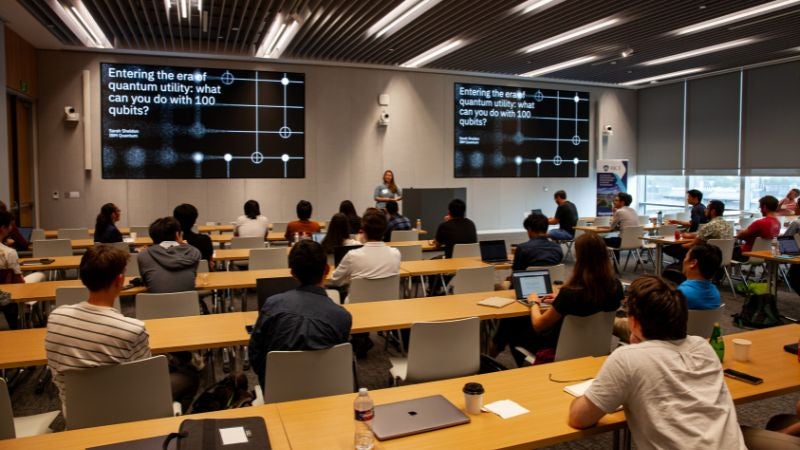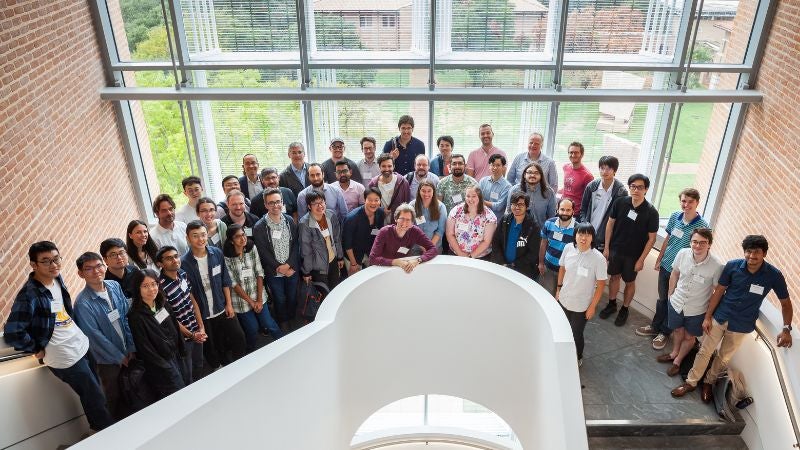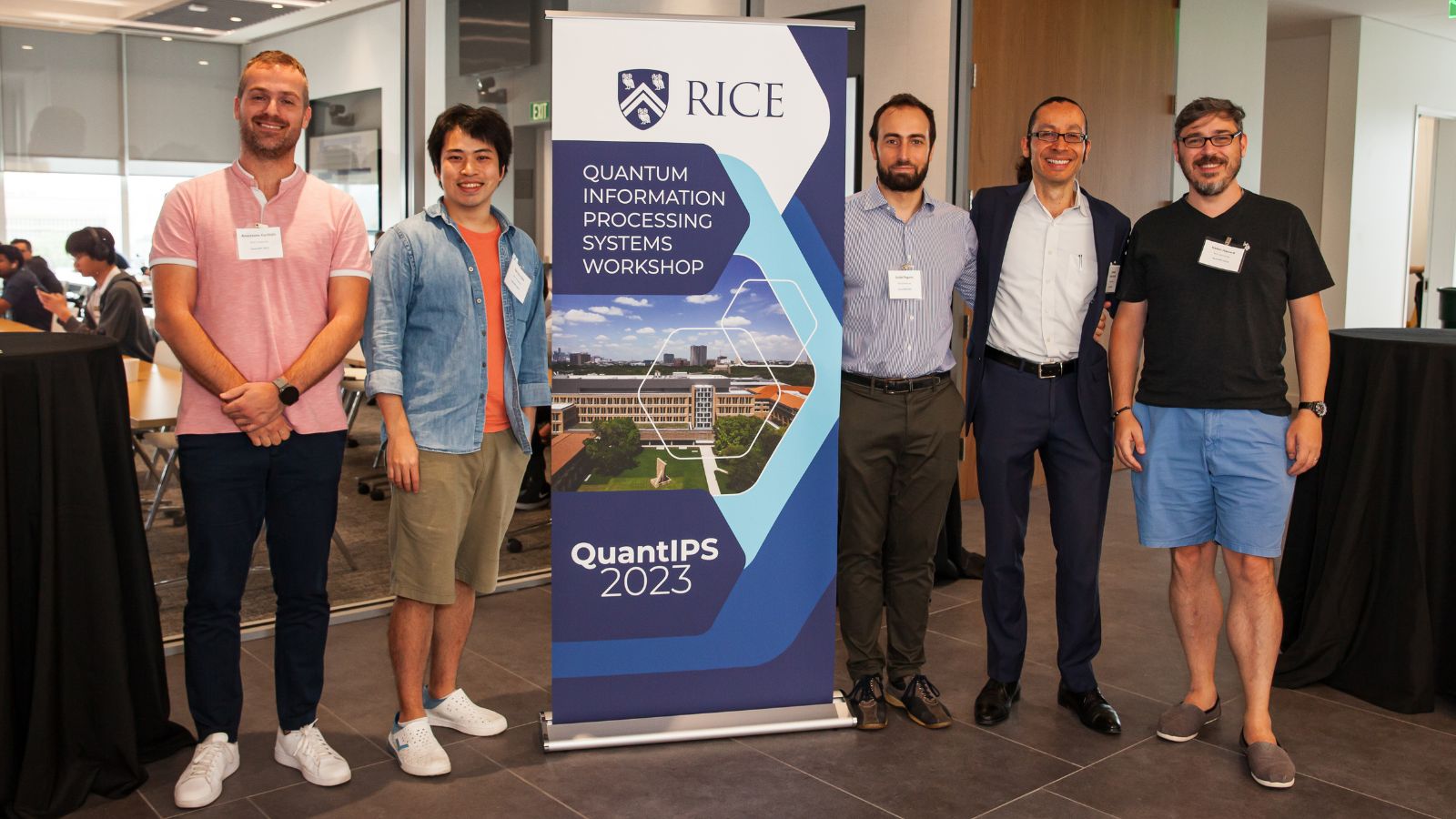Rice University hosted the first workshop on Quantum Information Processing Systems (QuantIPS 2023) on October 26-27 at the Ralph S. O’Connor Building for Engineering and Science. The two-day summit of talks brought together more than 60 domestic and international researchers in quantum algorithms and computing, quantum simulation, and applications of quantum information science. Physicists, chemists, computer scientists, and engineers participated in discussions focusing on new quantum algorithmic designs and applications.
Why tackling quantum-related questions is important
According to Anastasios Kyrillidis, Noah Harding Assistant Professor in Computer Science, tackling quantum-related questions “is essential for both deepening our understanding of the fundamental nature of the world around us and unlocking technological advancements that have the potential to reshape various aspects of our lives. The interplay between theory and application in quantum physics drives scientific and technological progress.”

Kyrillidis noted that ongoing research in quantum physics has the potential to unlock new technologies, such as: error-free new computational machines in quantum computing; alternative communication capabilities in quantum communication; and quantum sensors. All of these could revolutionize computing, communication, and sensing capabilities.
QuantIPS 2023 outcomes
Some of the major takeaways, according to Kyrillidis, were the “incredible recent industrial advances building quantum computers using different techniques,” as well as “the need to connect hardware design with algorithmic design and the need to understand the difficulties in getting improvements on the hardware side.” Invited speakers and attendees engaged in discussions to create stronger ties between what theoreticians work on and what practitioners build and observe in practice, aiming for provable, efficient, and practical quantum computing.

Most plenary speakers work in different areas of quantum research, highlighting the diversity of possibilities within the field and creating the potential for collaboration and interactions among the participants. QuantIPS initiated discussions among the Rice faculty organizers, Anastasios Kyrillidis (CS), Nai-Hui Chia (CS), Leonardo Dueñas-Osorio (Civil & Environmental Engineering), Kaden Hazzard (Physics & Astronomy), and Guido Pagano (Physics & Astronomy), to target additional external grants from agencies and corporations, including the National Science Foundation, the Department of Defense, NASA, and ExxonMobil.
“One of our goals,” Kyrillidis explained, “was to center attention on Rice University from the top universities and companies that are active in the quantum area, and we were successful in that regard.” Plenary speakers featured leading quantum researchers from industry and academia, including IBM, Duke, UT Austin, MIT, QuEra Computing, Quantinuum, and École Polytechnique Fédérale de Lausanne (EPFL) in Switzerland. “Current discussions with peer Texas institutions make us confident that QuantIPS could become a recurrent event,” Kyrillidis noted. This would elevate Texas' standing—and, by extension, Rice University—in the quantum world.
Rice University, the George R. Brown School of Engineering, the Ken Kennedy Institute, and the Smalley-Curl Institute sponsored the workshop. In addition to the Rice faculty listed above, Rice CS PhD students Junhyung Lyle Kim and David Quiroga also helped organize the event.
More information about the workshop can be found here.

